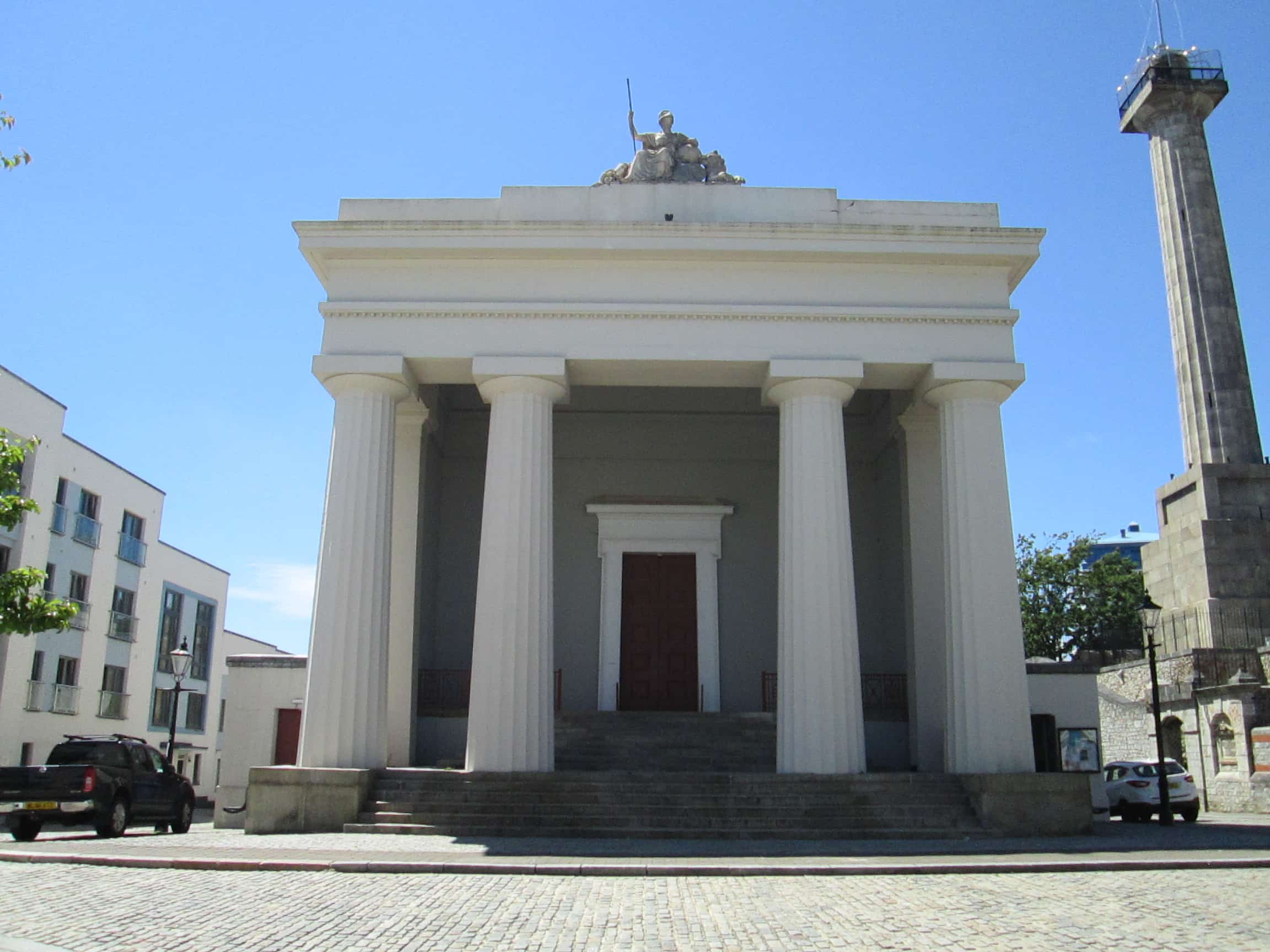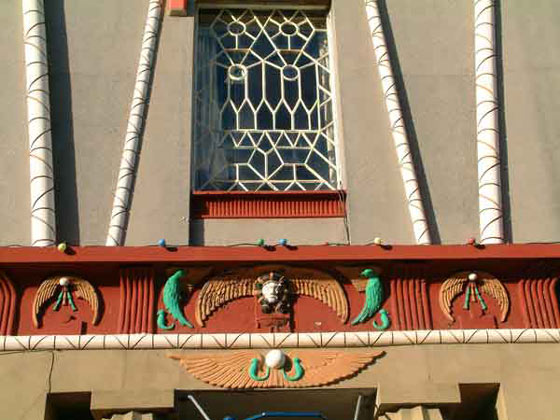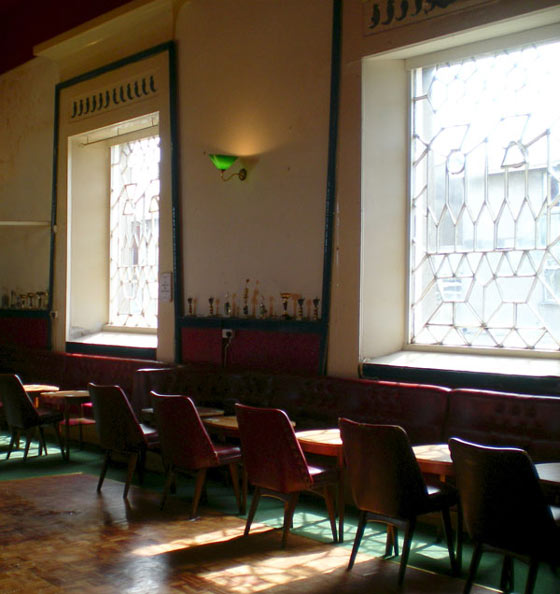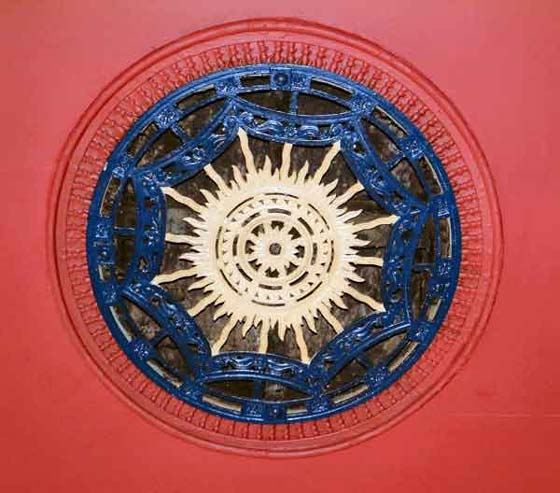Our Plymouth "Friendly": the Guildhall, the Odd Fellows and "the emotions of friendship"
We are preparing for our next "Friendly" in Plymouth - to be precise, at the Devonport Guildhall, 12th June, 6.30-9.00pm (tickets on Eventbrite, and discussion page on Facebook).
We have a full programme of speakers, performers and fun games/facilitations, all in the service of exploring what a bigger future for the communities of South Devon could look like. If you're in the area, please come.
And if you know people in the area who might be up for it, please pass the details (and the links) on. We'll be highlighting the most inspiring and transformational groups coming into this space over the next week, here and on Facebook.
But before we start that, we just want to momentarily direct your eyes away from the strikingly classical frontage of the Devonport Guildhall (left, above) - the site of our Friendly - to the strikingly strange frontage of the building next door (centre, above).
This is the Odd Fellow Halls. Currently a social club, it is also emblematic of a historical story of community, togetherness, friendship and solidarity...
We came upon a blog from the academic Thomas Dixon the other day. The title is "Solidarity as an Emotion" (he was involved in an academic strike at the time). But at the end, it takes a diversion into the history of the "Oddfellows":
...Is ‘solidarity’ an emotion? Is striking an act of love? As with ‘altruism’, ‘socialism’ and many other affective political terms, it depends on drawing a boundary somewhere to define who shares enough sympathies and interests to fall within the circle of affection.
According to some early users of the term, ‘solidarity’ named a universal shared sympathy among all individuals and all nations. For instance, in an 1842 book by Hugh Doherty about the French socialist Charles Fourier’s theory of the passions:
A nation is but a simply member of humanity, and so long as any other nation is suffering under the evils of ignorance, privation, and depravity, the whole body of the human race is more or less affected by the individual affliction. There is an inevitable solidarity, or mutual and collective responsibility, between all the nations of the earth, and all the individuals of each nation. If one country is infected with a pestilential disease, all the others are exposed to the dangers of contagion; if neighbouring states are allowed to remain in poverty, under the illusions of military glory, they will, sooner or later, conquer and spoliate their opulent neighbours.
That extract was approvingly quoted in a newspaper called The Odd Fellow - published by one of the ‘Friendly Societies’ set up to foster cooperation and mutual aid. Which brings me back to the lecture I should have been giving about the histories of love and friendship.
And before this becomes too much like actually giving my lecture may I recommend this episode of "Five Hundred Years of Friendship" about "Felons and Oddfellows".
Here's the episode of the BBC documentary. And here's its blurb:
Thomas Dixon traces the idea of friendship as a form of practical self-help back to the Friendly Societies of the 18th and 19th centuries. At their peak, there were 9000 of these grass-roots institutions - many with quaint, archaic names, such as The Manchester Unity of Oddfellows - and it is estimated that 40% of the adult male population belonged to one - mobilising the power of friendship in a sort of forerunner of the Welfare State.
The importance of the idea of friendship emerges through the colourful vocabulary of friendship in the period - from cronies, trumps and bloaters to culliles, marrows and rib-stones, and the more familiar, chums and pals.
So the "friendly revolution" - proclaimed by Uffe Elbaek, the founder of The Alternative in Denmark - seems to be a recurrent theme in social history...
We've also been alerted to the continued existence of the Oddfellows by our two friends (and Alternativet Ambassadors) Peter Jenkinson and Shelagh Wright. They are trying to engage the current Oddfellows network - see current website here, very much in the Rotary club style - as a social force.
Peter and Shelagh told us that the Oddfellows had historically been a space for those "odd" collections of tradespeople who couldn't make it into the more exclusive guilds. This makes a lot of sense of the placement of the two buildings in Devonport. (The Wikipedia history shows that the Oddfellow organisation its has a long and tangled past, in parallel with various other "fraternal" orders).
The Devonport Odd Fellows Hall itself - built in the "Egyptian Style", popularised after the Napoleonic wars in 1823 (interior details above) - was originally the "Stonehouse and Devonport Classical and Mathematical Subscription School". It came into the Oddfellows ownership in 1867, and owned it for a century.
Its current owners have ambitious plans to restore the building, which English Heritage has listed as a Grade 1 structure, and is on Plymouth's preservation list.
We hope to say hello to them soon. And every time we see these buildings, we are struck by one of our insights about localism. Which is that every place thrums with a history which has already engaged with the personal, social and global realms of existence (what we call "I, We, World").
What we hope to do in the next few weeks and months is to tap into that community strength. Going by even this little fragment of living history, it seems anchored in a past that could give somes clues as to how master the future - with perhaps the values of friendship, connectedness, mutual support, even "solidarity", paramount.
Indeed, we may all need to be somewhat "odd fellows" to cope with what's coming...






